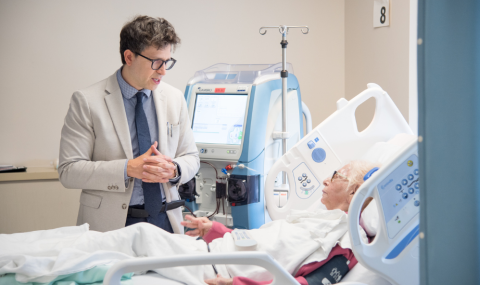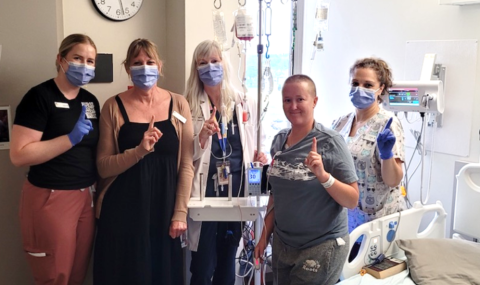The role of the LHSC Trauma Program is to provide leadership in the care of seriously injured adults and children in Southwestern Ontario.
The program coordinates clinical services to meet the needs of the region and is also active in the areas of trauma education, trauma research and Injury Prevention.
Within these pages you will also find useful information to help keep you and your family safe and free from injuries.
Keeping you safe
Injuries are recognized as a major public health problem throughout the world and London and Southwestern Ontario are no exception in that regard. Preventing injuries from occurring in the first place is the most cost effective way to reduce the incidence of injury death and disability. Injuries are predictable and preventable!
The Trauma Program at LHSC is active in the development and dissemination of injury prevention programming and education across the region we serve as a trauma centre.
To help keep you and your family save check out the resources linked below.
About us
LHSC serves as a designated Lead Trauma Hospital (LTH).
There are currently eleven hospitals in Ontario that have been designated as LTH's by the Ministry of Health and Long Term Care. These eleven hospitals comprise a provincial trauma system that includes all the components identified with optimal trauma care such as prevention, access, acute hospital care, rehabilitation, education and research activities.
In southwestern Ontario, the role of the LHSC Trauma Program is to provide leadership in the specialized care of moderately and severely injured adults and children. The program coordinates services to meet regional needs and participates in local, provincial and national programs related to education, research and injury prevention.
The Trauma Program is an integral part of the LHSC Surgery Services with strong linkages to Emergency Care, Children's Care and Western University.
The Trauma Program is governed by the Ministry of Health and Long Term Care ( MOHLTC) Lead Trauma Hospital: Roles and Responsibilities Policy. Excerpts from this important document follow:
Vision:
The Lead Trauma Hospitals (LTH's) of the province of Ontario will provide timely, efficient clinical care to the injured citizens of Ontario of all ages through an integrated and fully supported trauma network. The LTH's will assume a major collaborative role with our partners in injury prevention, trauma education, trauma outreach and research.
Principle:
A trauma victim, requiring a high-level of care, should have access to the closest appropriate health care facility as quickly as possible to minimize life-threatening injuries. Regionalizing and integrating Lead Trauma Hospitals (LTH's), within the Provincial Trauma Network (PTN), reduces trauma morbidity and mortality by decreasing the distance and time between the incident and high-level care.
LTH's have a collective responsibility to the citizens of Ontario and accountability to their region and to the Ministry of Health and Long Term Care (MoHLTC) to ensure the necessary capacity to provide essential, high-level care, including assessment and initial treatment (i.e., resuscitation and stabilization), and an effective, referral network on a 24 hour basis.
Purpose:
The purpose of the LTH program is to ensure high-level care for patients with serious trauma and to provide leadership in the areas of injury prevention, trauma research and trauma education. The LTH's are funded by the Ministry of Health and Long Term Care (MOHLTC) to ensure 24-hour Trauma Team Leader (TTL) availability, program management and data collection. All LTH's are acute-care hospitals that have the expertise, technology, and facilities to provide the highest possible level of care to major trauma patients within their respective regions. Important components of acute trauma care at a LTH include coordination with pre-hospital care, the provision of in-hospital treatment and discharge from hospital to community rehabilitation.


